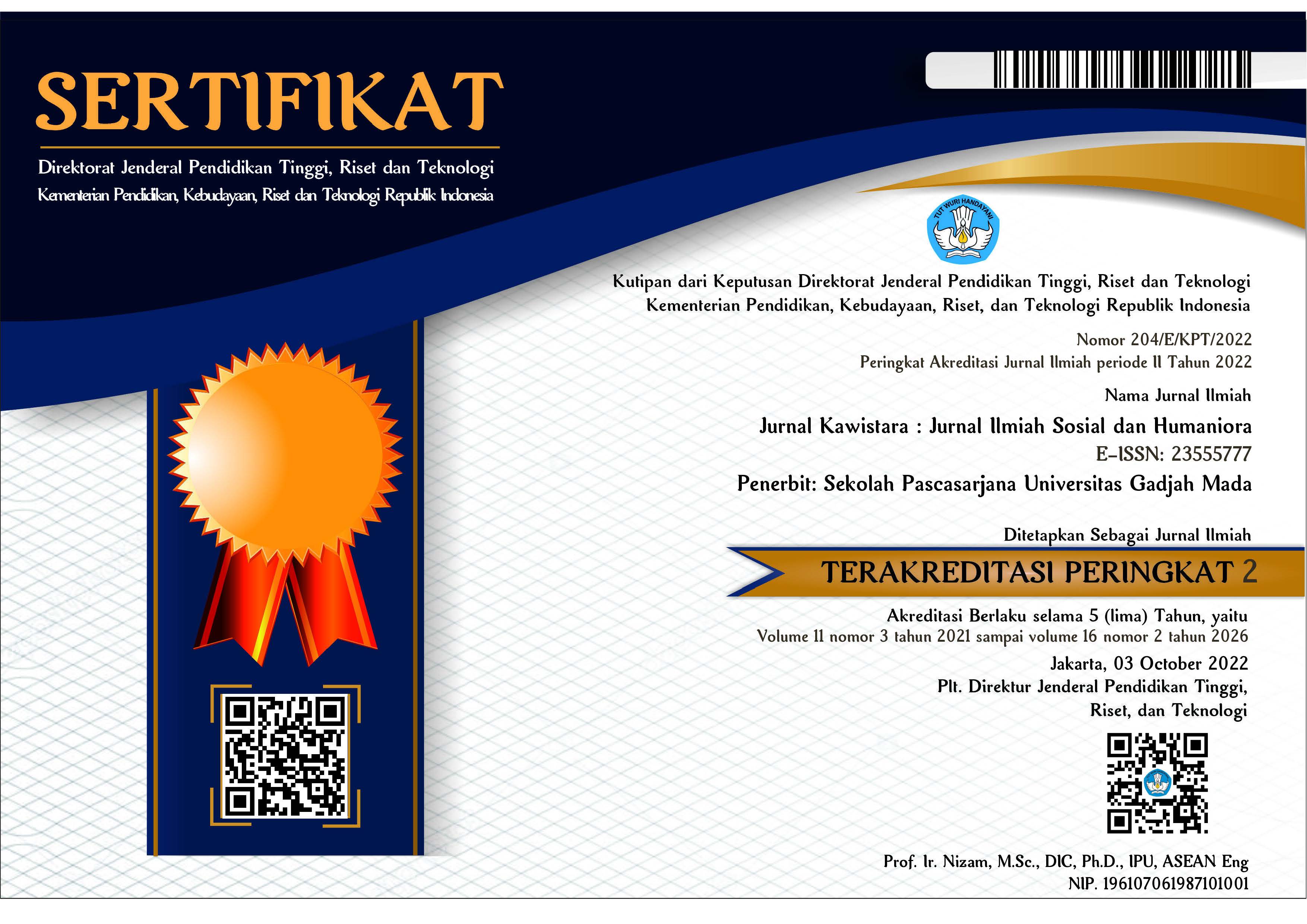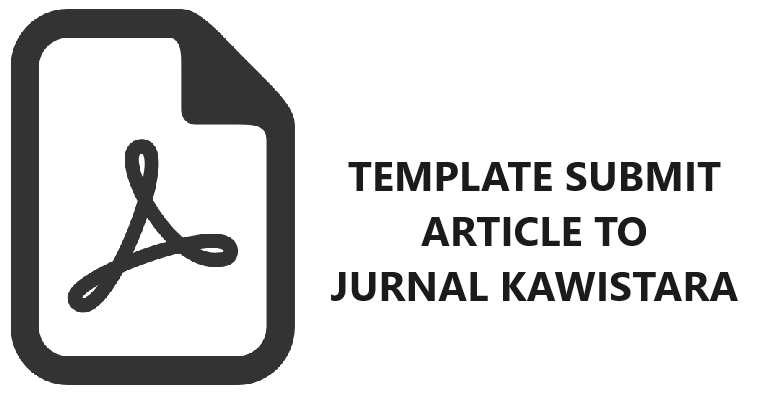The Socio-Entrepreneurship Potential of Migrant Workers during the Covid-19 Era: A Mapping Study in Suralaga, East Lombok
Saipul Hamdi(1*), Oryza Peneumatica Inderasari(2), Syarifuddin Syarifuddin(3), Indah Firgina Sari(4)
(1) University of Mataram
(2) University of Mataram
(3) University of Mataram
(4) University of Mataram
(*) Corresponding Author
Abstract
The article aims to map the socio-entrepreneurship potential of migrant workers in the Covid-19 era. This mapping is vital to identify the potential that migrant workers have since they seek diversification during the pandemic years. In particular, this paper attempts to investigate the potential of this community as a socio-entrepreneurship resource for migrant workers as it has been seen essential an alternative approach to mitigating the effects of Covid-19. This study focuses on the Suralaga district, an area in East Lombok, which is known for a high number of migrant workers. This study is based on a qualitative approach and phenomenological methodology to gather and analyze data for six months (January–June 2022). There are 25 informants total in this study, 15 of whom are men and 10 of them are women. We used a variety of techniques to gather the data, including participant observation, in-depth interviews, focus groups, and documentation. The results of the study demonstrate that because of their low educational attainment—the majority of migrant employees having only completed elementary or junior high school—migrant workers have limited knowledge and skill, therefore it is difficult to find a job when they finished the contract and back home. In terms of natural potential, the Suralaga region's terrain is part of a farming area, where the majority of people work as farmers and grow tomatoes and chilies. The finding of this research also demonstrates the critical role that micro, small, and medium-sized businesses play in fostering the economic growth of migrant workers and serving as a counterweight to Covid-19's hegemonic middle class.
Keywords
Full Text:
PDFReferences
Agustika, I. G., & Rustariyuni, S. D. (2017). “Faktor-faktor yang mempengaruhi pengiriman remitan tenaga kerja kapal pesiar dan pemanfaatannya di kabupaten Tabanan”, Jurnal Piramida, 8(1), pp, 40.
Bozhikin, I., Macke, J., & da Costa, L. F. (2019).“The role of government and key nonstate
actors in social entrepreneurship:A systematic literature review”, Journal of cleaner production, 226, pp. 740, doi: https://doi.org/10.1016/j.jclepro.2019.04.076.
Chandra, Y. (2017). Social entrepreneurship as emancipatory work. Journal of Business Venturing, 32(6), doi: https://doi.org/10.1016/j.jbusvent.2017.08.004.
Ciuchta, M. P., & Finch, D. (2019). The mediating role of self-efficacy on entrepreneurial intentions: Exploring boundary conditions. Journal of Business Venturing Insights, 11(May), pp. 7, doi:https://doi.org/10.1016/j.jbvi.2019.e00128.
Diyanti. (2011). “Dampak Positif & Negatif Pengiriman TKI Ke Luar Negeri” retrieved on March 10, 2022, https://d iyant ikus r iyant i n i .wordpr e s s .com/2011/05/31/dampak-positif-dannegatif-pengiriman-tki-ke-luarnegeri/
Firdaus, N. (2014). Pengentasan kemiskinan melalui pendekatan kewirausahaan sosial.
Jurnal ekonomi dan Pembangunan, 22(1), pp. 63, doi:https://doi.org/10.14203/JEP.22.1.2014.69-81.
González, M. F., Husted, B. W., & Aigner,D. J. (2017). Opportunity discovery and creation in social entrepreneurship: An exploratory study in Mexico. Journal of Business Research, 81, pp. 215, doi: https://doi.org/10.1016/j.jbusres.2016.10.032.
Hamdi, S. (2021). Tantangan Migrasi, Pengelolaan Remitansi, dan Kekerasan terhadap Buruh Migran Perempuan Asal Lombok di Malaysia dan Arab Saudi. RESIPROKAL: Jurnal Riset Sosiologi
Progresif Aktual, 3(1), 22-24, doi: https://doi.org/10.29303/resiprokal.v3i1.60.
Hasanah, Lak lak Nazhat El,. (2018). Pengembangan Kewirausahaan Sosial Pada Perguruan Tinggi Melalui Social Project Competition. Jurnal Studi Pemuda. Vol. 7 No. 2, doi:https://doi.org/10.22146/studipemudaugm.40210.
Haslan, M.M & Fauzan, A. (2021). Dampak Negatif Pengiriman Tki Ke Luar Negeri Terhadap Kehidupan Kaum Perempuan Sasak (Studi Kasus di Pulau Lombok Provinsi NTB). Jurnal Rontal Keilmuan Pancasila dan Kewarganegaraan, 7(2), pp.53, doi: https://doi.org/10.29100/a.
Ihza, K. N. (2020). Dampak Covid-19 Terhadap Usaha Mikro Kecil Dan Menengah (UMKM)
(Studi Kasus Umkm Ikhwa Comp Desa Watesprojo, Kemlagi, Mojokerto). Jurnal Inovasi Penelitian, 1(7), doi: https://doi.org/10.47492/jip.v1i7.268.
Imansyah, Nur. (2021). 13.541. Pekerja Migran Indonesia Asal NTB Kembali Ke Kampung
Halaman, Retrieved on 12 March 2021,from https://www.antaranews.com/berita/2171322/13541-pekerja-migranindonesia-asal-ntb-kemba l i-kekampung-halaman.
Latifah, S. W., & Jati, A. W. (2016).Pengembangan Usaha bagi Mantan TKIdi Kecamatan Donomulyo Kabupaten Malang. JBMP (Jurnal Bisnis, Manajemen dan Perbankan), 2(1), doi: https://doi.org/10.21070/jbmp.v2i1.910.
Muñoz, P., & Kimmitt, J. (2019). Social mission as competitive advantage: A configurational
analysis of the strategic conditions of social entrepreneurship. Journal of Business Research, 101, doi: https://doi.org/10.1016/j.jbusres.2018.11.044.
Rammohan, A., & Magnani, E. (2012). Modelling the influence of caring for the elderly on
migration: Estimates and evidence from Indonesia. Bulletin of Indonesian Economic Studies, 48(3), doi: https://doi.org/10.1080/00074918.2012.728652.
Mahbubah, S., & Kurniawan, R. Y. (2022).Pendidikan Kewirausahaan dan Lingkungan Sosial Terhadap Intensi Berwirausaha Dengan Efikasi Diri Sebagai Variabel Mediasi. JURNAL SOSIAL
EKONOMI DAN HUMANIORA, 8(1), doi:https://doi.org/10.29303/jseh.v8i1.1.
Palesangi, M. (2012). Pemuda indonesia dan kewirausahaan sosial. Prosiding Seminas,1(2).
Sadi, M. A., & Al-Ghazali, B. M. (2010). Doing business with impudence: A focus on women entrepreneurship in Saudi Arabia.African journal of business management,4(1), 1.
Santosa, S. P. (2007), “Peran Social Entrepreneurship dalam Pembangunan”,Makalah dipresentasikan di acara Seminar “Membangun Sinergisitas Bangsa Menuju Indonesia Yang Inovatif, Inventif dan Kompetitif”, Universitas Brawijaya.
Sofia, I. P. (2017). Konstruksi Model Kewirausahaan Sosial (Social Entrepreneurship) sebagai gagasan inovasi sosial bagi pembangunan perekonomian. Widyakala: Journal of Pembangunan Jaya University, 2(1), doi: https://doi.org/10.36262/widyakala.v2i1.7.
Statistik, Direktorat Diseminasi. (2021).Statistik Indonesia 2021. Jakarta: Badan Pusat Statistik/BPS-Statistic Indonesia.
Suparmoko. (1999). Ekonomi Sumber Daya Alam dan Lingkungan. edisi 2. Yogyakarta: BPFE UGM.
Sumodiningrat, G. (1997). Pembangunan Daerah dan Pemberdayaan Masyarakat.
Jakarta: Bina Rena Pariwara.
Wahyono, E., Kolopaking, L. M., Sumarti, T.,& Hubeis, A. V. S. (2019). Jaringan digital dan pengembangan kewirausahaan sosial buruh migran perempuan. Jurnal Ilmu Komunikasi, 16(1), 57-76.
Wardiyanto, Bintoro, Aminah, Siti and Martanto, Ucu. (2016). Percikan pemikiran tata kelola dan pembangunan desa. Surabaya: Airlangga University Press.
Yuniriyanti, E., Sudarwati, R., & Nurdewanto, B. (2020, October). Filantropi: Wujud Kewirausahaan Sosial dalam Upaya Pemberdayaan Perempuan Purna Pekerja Migran. In Seminar Nasional Sistem Informasi (SENASIF) (Vol. 4, pp. 2368-2382).
Zakaria. (2019). “Profil singkat sejarah terbentuknya Kecamatan Suralaga”retrieved on March 15, 2022, from https://zakariaberbagiinfobk.blogspot. com/2019/03/profil- singkatsejarahterbentuknya. html.
Article Metrics
Refbacks
- There are currently no refbacks.
Copyright (c) 2023 Saipul Hamdi; Oryza Peneumatica Inderasari; Syarifuddin Syarifuddin; Indah Firgina Sari

This work is licensed under a Creative Commons Attribution-ShareAlike 4.0 International License.
Jurnal Kawistara is published by the Graduate School, Universitas Gadjah Mada.











